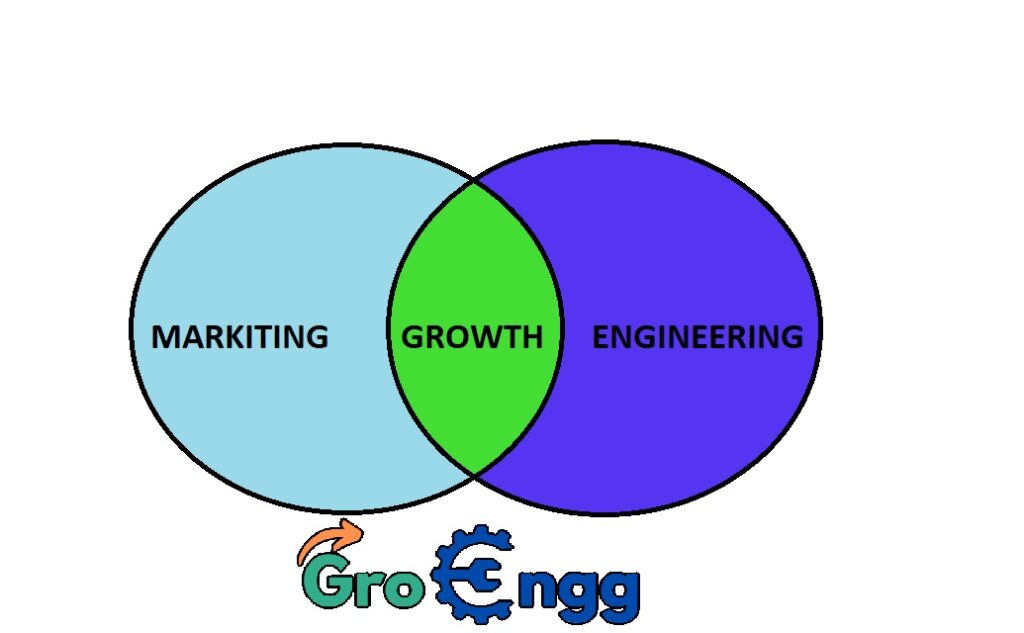Driving Business Success in the Digital Age
In today’s competitive business landscape, companies are constantly seeking ways to accelerate their growth and stay ahead of the curve. One emerging role that has gained significant traction in recent years is that of a growth engineer. But what exactly does a growth engineer do, and how do they contribute to a company’s success? In this blog post, we’ll delve into the key responsibilities, skills, and impact of a growth engineer in the digital age.
What is a Growth Engineer?
A growth engineer is a professional who combines technical skills with strategic thinking to drive business growth. They focus on identifying, analyzing, and implementing strategies that enhance user acquisition, retention, and overall revenue. Growth engineers work at the intersection of product development, marketing, and data analytics, leveraging their expertise to optimize and scale business operations.

Key Responsibilities of a Growth Engineer
- Data Analysis and Insights Growth engineers analyze vast amounts of data to uncover insights that inform growth strategies. They track key performance indicators (KPIs) such as user engagement, conversion rates, and customer lifetime value. By interpreting this data, they identify trends, opportunities, and areas for improvement.
- Experimentation and A/B Testing Experimentation is a core aspect of a growth engineer’s role. They design and conduct A/B tests to evaluate the effectiveness of different strategies and features. This iterative approach allows them to make data-driven decisions and optimize user experiences, ultimately driving growth.
- Product Development and Optimization Growth engineers collaborate with product teams to develop and refine features that enhance user engagement and retention. They use their technical skills to implement changes, ensuring that products are not only functional but also optimized for growth.
- User Acquisition Strategies A significant part of a growth engineer’s job involves devising and executing user acquisition strategies. This includes leveraging various channels such as social media, search engine marketing, email campaigns, and partnerships to attract new users and expand the customer base.
- Automation and Scalability To achieve sustainable growth, growth engineers focus on automating processes and creating scalable systems. This involves developing tools and scripts that streamline marketing efforts, data collection, and reporting, allowing the business to grow efficiently without compromising on quality.
- Cross-Functional Collaboration Growth engineers work closely with marketing, sales, product, and customer success teams. This collaboration ensures that growth initiatives are aligned with the overall business strategy and that all teams are working towards common goals.
Essential Skills for a Growth Engineer
- Technical Proficiency Growth engineers need a strong technical background, often including skills in programming languages (such as Python, JavaScript, or SQL), data analysis tools, and web development frameworks. This technical expertise allows them to implement and test growth strategies effectively.
- Analytical Thinking The ability to analyze data and draw actionable insights is crucial for growth engineers. They must be comfortable working with analytics platforms like Google Analytics, Mixpanel, or Amplitude, and be adept at statistical analysis.
- Creativity and Innovation Growth engineers must think creatively to develop innovative solutions for growth challenges. This involves brainstorming new ideas, experimenting with unconventional approaches, and constantly seeking ways to improve existing processes.
- Communication and Collaboration Effective communication skills are essential for growth engineers, as they need to convey complex technical concepts to non-technical team members and stakeholders. Strong collaboration skills ensure that growth initiatives are successfully executed across different departments.
- Strategic Mindset A growth engineer must have a strategic mindset, understanding the broader business goals and aligning their efforts accordingly. They should be able to prioritize tasks based on potential impact and long-term value.
The Impact of a Growth Engineer on Business Success
Growth engineers play a pivotal role in driving a company’s success. Their unique blend of technical expertise and strategic acumen enables them to identify growth opportunities, optimize user experiences, and implement scalable solutions. By continuously experimenting, analyzing data, and collaborating with cross-functional teams, growth engineers help businesses achieve sustainable growth and stay competitive in an ever-evolving market.
In conclusion, a growth engineer is a vital asset for any company looking to accelerate its growth and adapt to the digital age. Their ability to blend technical skills with strategic thinking makes them uniquely equipped to tackle the challenges of modern business growth. As the digital landscape continues to evolve, the role of the growth engineer will undoubtedly become even more crucial in driving business success.

Leave a Reply